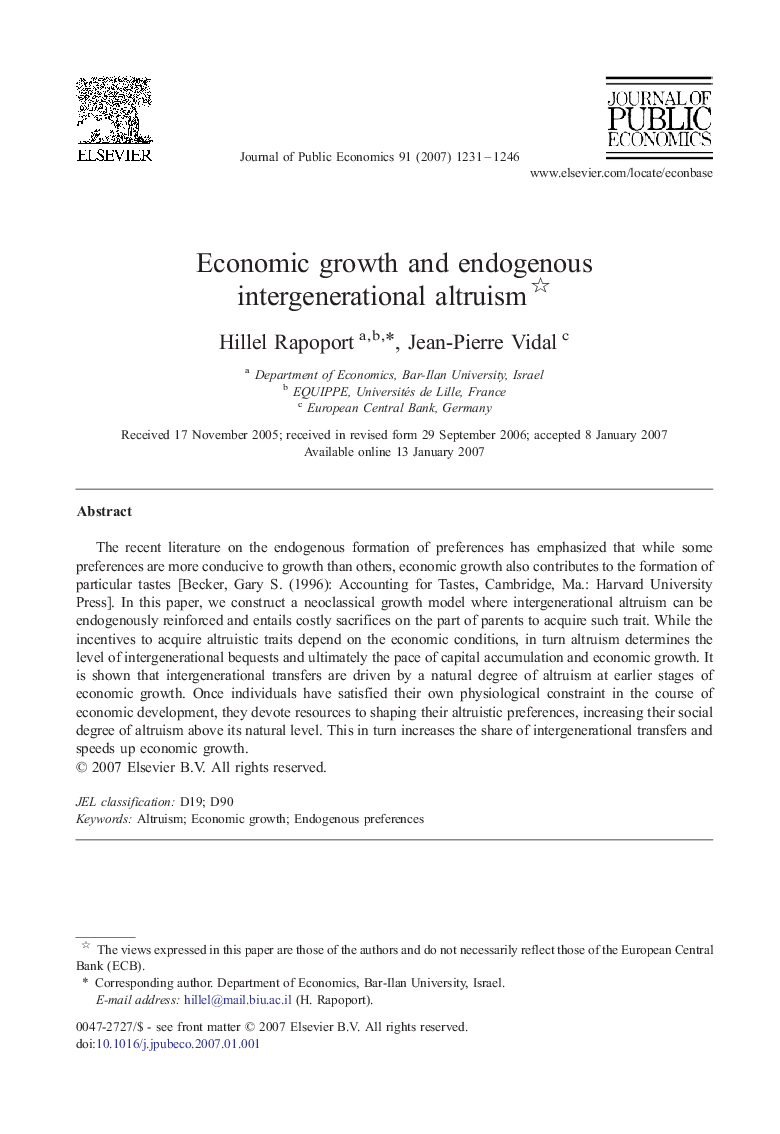| Article ID | Journal | Published Year | Pages | File Type |
|---|---|---|---|---|
| 969498 | Journal of Public Economics | 2007 | 16 Pages |
The recent literature on the endogenous formation of preferences has emphasized that while some preferences are more conducive to growth than others, economic growth also contributes to the formation of particular tastes [Becker, Gary S. (1996): Accounting for Tastes, Cambridge, Ma.: Harvard University Press]. In this paper, we construct a neoclassical growth model where intergenerational altruism can be endogenously reinforced and entails costly sacrifices on the part of parents to acquire such trait. While the incentives to acquire altruistic traits depend on the economic conditions, in turn altruism determines the level of intergenerational bequests and ultimately the pace of capital accumulation and economic growth. It is shown that intergenerational transfers are driven by a natural degree of altruism at earlier stages of economic growth. Once individuals have satisfied their own physiological constraint in the course of economic development, they devote resources to shaping their altruistic preferences, increasing their social degree of altruism above its natural level. This in turn increases the share of intergenerational transfers and speeds up economic growth.
